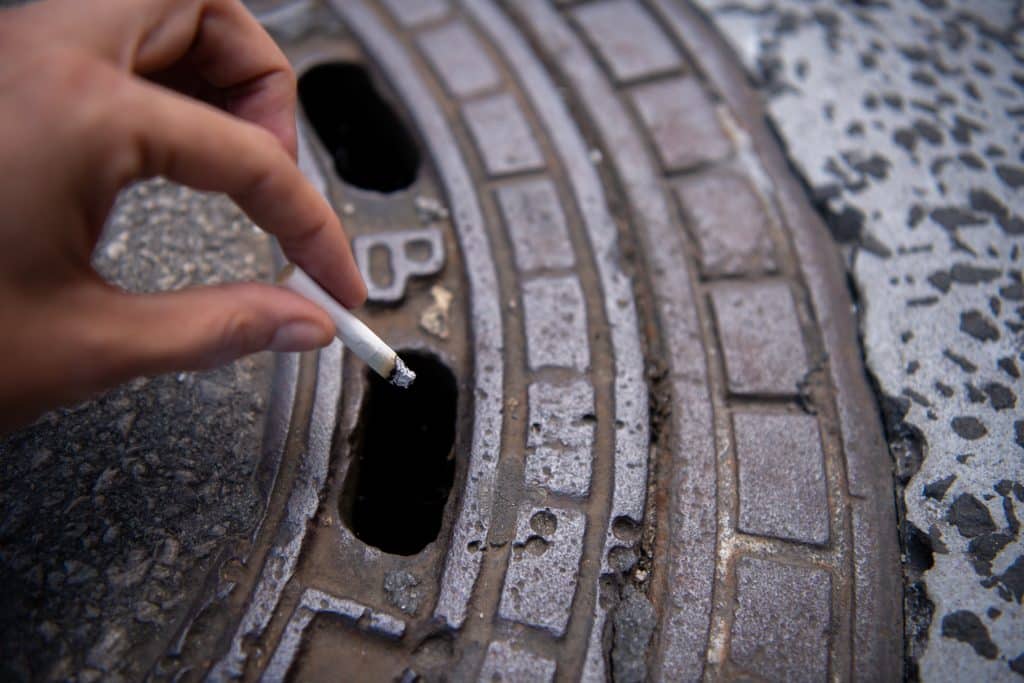Many smokers often throw their cigarettes into the street sewer, convinced that they are not polluting the environment that way. Because of all this, there could already be more cigarettes than fish in the seas in 2030.
According to data from the National Institute of Public Health of Slovenia from 2019, 17.4 percent of the population of Slovenia over the age of 15 define themselves as regular smokers, while 5.8 percent of the population say they smoke occasionally.
The results of research by the non-governmental organization Ecologists without Borders show that a greater proportion of these smokers throw their cigarettes into nature instead of into the ashtray or trash.
During the observation of smokers, it was determined that about 40 percent of smokers throw their cigarette butts away properly, i.e. in the trash can, and 44 percent throw them away improperly on the ground or on the grass, next to the waste container, into water or a sewer shaft.
Many are convinced that throwing cigarettes into the sewer is a better solution than throwing them into nature – but it is not so. Cigarette butts contain plastic and more than 150 toxic substances, which sooner or later will end up in our environment, even through the sewerage shaft, writes N1 Slovenia.
“If we throw the rest of the cigarette into the sewer, it will probably be caught by the filters of the city wastewater treatment plant, it will pollute the mud and limit composting. A large part of that sludge is burned, so part of the affected filters will end up as other burned plastic,” warns Ecologists Without Borders.
“If the purifier does not stop the cigarette butt, its path will be the same as if it had been thrown directly into the environment, only slightly longer. One cigarette can pollute a thousand liters of water, and that’s why it’s important to dispose of it only as mixed municipal waste,” emphasizes Ecologists Without Borders.
The Ljubljana waste management company “Snaga” is also clear that cigarette butts should be disposed of among mixed waste and not in nature, drains or containers for biological waste, as they will release toxins and small plastic particles into the environment.
Plastic in cigarette filters will decompose for up to ten years, and harmful arsenic and lead will be released into the environment.
Data from the global network that fights to clean cigarettes from nature, Let’s Do It World, show that the tobacco industry produces six thousand billion cigarettes every year, and about 75 percent, or 4,500 billion per year, end up in nature.
More cigarettes than fish
Three quarters of people are still convinced that cigarette butts are mostly made of paper or cotton and therefore are not so harmful to the environment, and this is wrong. If the trend is not stopped, in 2030 there will be more cigarettes than fish in the seas, warns Ecologists Without Borders.
The research showed that in the late evening the proportion of improperly disposed of cigarettes was as much as five times higher.
Track N1 via Android apps | iPhone/iPad and social networks Twitter | Facebook | Instagram.

